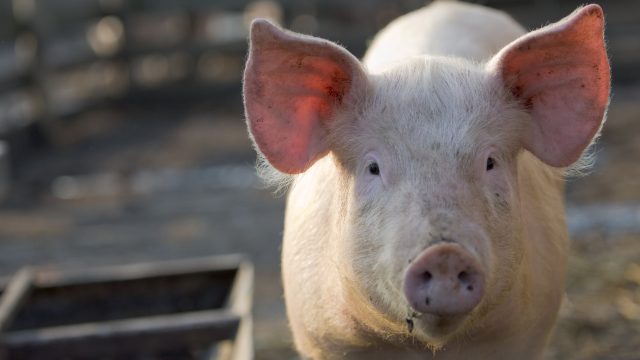
B.C. Supreme Court Awards Shared Custody of a Dog After Changes to Family Law Act
By Nicole Pallotta, PhD, Senior Policy Program Manager
Contents
Summary:
Summary: In a first-of-its-kind ruling in Canada, the Supreme Court of British Columbia (B.C.) has awarded shared custody of a dog, referencing her best interests, animal sentience, and recent changes to the Family Law Act that differentiate companion animals from other property in divorce proceedings. B.C.’s new animal custody law is similar to those found in the U.S., where a growing number of states have updated the strict property analysis historically used in such disputes by requiring courts to consider the interests or well-being of the animal. The increase in “pet custody” laws is the product of two positive, and related, global trends: recognition of animals’ status as members of multispecies families and respect for animal sentience.
In a first-of-its-kind ruling in Canada, the Supreme Court of British Columbia (B.C.) has awarded shared custody1 of a dog. The decision comes in the wake of recent changes to the Family Law Act that differentiate companion animals from other property in divorce proceedings.
Changes to the Family Law Act Pertaining to Companion Animals
The Family Law Amendment Act 2023 came into effect in January 2024 and mandates that companion animals be treated differently from other types of property in disputes over possession in cases of divorce and separation.
The new law requires judges to consider several factors when determining legal custody of a companion animal: 1) the circumstances in which the animal was acquired; 2) the extent to which each spouse cared for the animal; 3) any history of family violence; 4) the risk of family violence; 5) a spouse’s cruelty, or threat of cruelty, toward an animal; 6) the relationship that a child has with the animal; 7) the willingness and ability of each spouse to care for the basic needs of the animal; and 8) any other circumstances the court considers relevant.
The Family Law Amendment Act also expands which courts can make these decisions. Previously, only the Supreme Court of Canada could decide who will have legal possession of an animal if the couple could not reach an agreement. Now both the Provincial Court — where the majority of B.C.’s court cases are heard2 — and the Supreme Court of B.C. are empowered to make these determinations.3
Although couples may independently create an agreement about joint possession, the Family Law Amendment Act stipulates that judges can only order one person to have sole possession of an animal and may not make orders that: 1) declare that the spouses jointly own the companion animal, or 2) require the spouses to share possession of the companion animal.
Curiously, shared custody is precisely what the judge ordered in this case. As noted by the Brooks Animal Law Digest:
This case is somewhat puzzling because joint ownership or shared possession of a pet cannot be ordered by the courts under the new legislation (s. 97(4.2)). Animal lawyer Rebeka Breder suggested that because another section of the act does allow for jointly owning or sharing possession of a companion animal (see s. 92(e) & (f)), the judgment, made in chambers by an associate judge, likely based his decision on a prior agreement not referenced in the reasons.

First Ruling Under the New Law
The first case decided in the B.C. Supreme Court under the amended Family Law Act was a dispute between a former couple over custody of their golden retriever, Stella, whom the couple purchased in 2020 when they were living together. The claimant sought an order that she have exclusive care of Stella. Although only the respondent’s name was on the receipt, the claimant presented evidence that she paid for “precisely half the value of Stella that was made at the time of Stella’s purchase.”
In rendering his decision that the former couple share custody, Associate Judge Scott Nielsen cited several factors, including the new law, animal sentience, and, most notably, Stella’s best interests:
Both the claimant and the respondent clearly love Stella. They have invested considerable legal fees and have made multiple court applications with a view to the best interests of Stella. Recent amendments to the Family Law Act essentially put the ownership of a companion animal, such as Stella, in the context of something that goes beyond ownership of a chattel. The sentience of the animal is recognized to the extent that the criteria reflect. Both the claimant and the respondent have shown a deep concern about the well-being of Stella, and I am satisfied that in the circumstances the custody of Stella should be shared on an interim without‑prejudice basis.
Language and De-objectification
According to a government-issued fact sheet about the changes to the Family Law Act:
Under the law, a companion animal is property, but it’s treated differently than other property (like furniture) when it comes to decisions about possession and ownership. A companion animal is more than just a pet, it’s a valued member of the family.4
It can be jarring to see a companion animal referred to as “it” alongside being called a “valued member of the family.” As this passage notes, companion animals are legally defined as property while often culturally defined as family members. This dual status at times creates ambiguity under the law, which is reflected in our language and inadvertently contributes to the objectification of animals.
Similarly, Judge Nielsen uses Stella’s name in the same sentence where he refers to her as “it.” (“There is a suggestion that the respondent struck Stella after it peed on the floor.”) Yet a few sentences earlier, he refers to Stella using the pronoun “she.” (“I am not prepared to attribute the fact that Stella had worms, to a form of abuse, if she had worms at all . . . ”) This inconsistent usage — even by the same person within the same document — reflects the fact that the status of companion animals itself is in flux.
The pronoun “it” is typically reserved for inanimate objects, which comprise the vast majority of legal entities defined as property. Referring to an animal as “it” reinforces their legal objectification, which is a persistent problem in animal law.5 Both the law and our everyday language should at minimum reflect that animals are sentient beings, not objects. B.C.’s new custody law and others like it highlight this duality — animals are legal property who are also living, feeling beings — and efforts to grapple with it meaningfully through the legal system.
Companion Animal Custody in the U.S.
B.C.’s new animal custody law is similar to those found in the U.S., where a growing number of states have passed, or are considering, legislation that clearly differentiates companion animals from other marital property. These laws update the strict property analysis historically used in divorce and separation proceedings — treating animals similar to inanimate property such as furniture — by requiring or empowering courts to take into account the interests or care of the animal.
In 2016, Alaska become the first U.S. state to pass a “pet custody” law. As of July 2024, seven states (and the District of Columbia) have followed suit — Illinois, California, New Hampshire, Maine, New York, Delaware, and Rhode Island — and several others have introduced similar bills. The Animal Legal Defense Fund actively supports this legislation and has submitted amicus briefs in animal custody disputes urging courts to consider the best interests of the animal.

The increase in “pet custody” laws is the product of two positive, and related, trends: recognition of animals’ status as members of multispecies families and respect for animal sentience. 6 This is reflected in other countries and areas of law as well.
For example, England and Northern Ireland’s recently enacted Pet Abduction Act 2024 recognizes the emotional trauma and distress that companion animals experience when they are taken from their families — in contrast to theft law, which treated animal abduction strictly as a property crime — and clarifies that they have a special legal status beyond mere property.7
Crafting a Strong “Pet Custody” Law
Each of the factors enumerated in B.C.’s Family Law Amendment Act clearly differentiates animals from other marital property. From the perspective of an animal’s well-being, among the most important is that the ability to care for their needs is considered in making custody determinations. However, “basic needs” is a rather low bar, typically interpreted as the minimum an animal needs to survive (often defined under cruelty laws as food, water, shelter, and sometimes basic veterinary care). As noted by B.C. animal lawyer Rebeka Breder, this legislation could be improved by “ensuring that animals be provided care for them to thrive.”8
One way to do this would be to replace “basic needs” with the more expansive “well-being” or “best interests,” or simply “needs,” “interests,” or “care.”9 Importantly, the new law specifically leaves room for “any other circumstances the court considers relevant.” Thus it is well within a court’s discretion to apply a less restrictive standard than “basic” care —which appears to be the case here as Judge Nielsen referenced the “best interests of Stella.”
Considering the relationship a child has with an animal is also significant as it places companion animals squarely within the embedded web of family relations, tacitly acknowledging the validity of multispecies families in the legal system. Other global animal law developments support the legal recognition of multispecies families, particularly in Latin America. 10 For example, in 2023 a Colombian court ruled for the first time that companion animals can be legal family members who are also negatively affected by divorce, referring to the plaintiff’s dog, Simona, as “his dog daughter.”11
Conclusion
The amendments to B.C.’s Family Law Act pertaining to companion animals are an important reform that recognizes their status as sentient beings and family members who are qualitatively different from inanimate marital property — and thus deserve special consideration not afforded to tables and toasters. This jurisprudential principle is reflected in the B.C. Supreme Court’s first ruling under the new law. The court’s analysis of who should have legal custody of Stella was based not on the strict property analysis historically applied in these cases but rather on the fact that both parties “clearly love Stella” and have shown “deep concern” about her well-being, squarely placing the decision to award joint custody “in the context of something that goes beyond ownership of a chattel.”

Further Reading
- Decision: Bayat v Mavedati, 2024 BCSC 619 (CanLII). March 13, 2024.
- Larsen, Karin. “Judge orders shared custody of pet dog under new B.C. law.” CBC. April 19, 2024.
- “What you need to know about family pets and the Family Law Act.” Provincial Court of British Columbia. January 9, 2024.
- Breder, Rebeka. “Changes to B.C.’s Family Law Act Include Pet Custody Provisions.” Canadian Bar Association Bar Talk. December 2023.
- “What To Do If You Are Involved in a Custody Battle Over Your Companion Animal.” Animal Legal Defense Fund.
- Dunn, Lora and David B. Rosengard. 2017. “A Dog is Not a Stereo: The Role of Animal Sentience in Determining the Scope of Owner Privacy Interests Under Oregon Law.” Animal Law Review. Vol 23, Issue 2.
References
- Colloquially referred to as “pet custody,” these cases are legally speaking disputes over ownership or possession. However, in this case the judge used the word “custody” in his ruling.
- See: https://courtsofbc.ca/provincial-court/overview
- See: https://www.provincialcourt.bc.ca/enews/enews-09-01-2024
- See: “Family Law and Companion Animals in British Columbia.”
- For more on this issue, see: “Pet Abduction Bill Becomes Law in England and Northern Ireland.” (Animal Law Update) and Lerner, Pablo. 2022. “Animals Are not Objects but Are not Yet Subjects: Developments in the Proprietary Status of Animals.” Animal and Natural Resource Law Review. Vol. 18. Michigan State University.
- See also: “How Animals Differ from Other Types of “Property” Under the Law.”
- See also: “Madrid Court Awards Joint Custody of a Dog in a Pioneering Ruling.” (Animal Law Update)
- Breder notes another shortcoming is that “the Supreme Court cannot make an order for joint custody, even though that is indeed in the best interest of animals sometimes,” but concludes that “notwithstanding some of these shortfalls, it is clear that our laws are evolving to reflect the reality that many people treat their companion animals like family members.”
- For example, Alaska and Illinois use the standard of “well-being.” Maine’s custody law mentions both the “well-being and basic daily needs” of the animal. Rhode Island’s new law references the “best interest” of the animal and the “animal’s needs including, but not limited to, feeding, walking, grooming, and veterinarian visits.” [emphasis added]
-
See: Condoy Truyenque, Marcia. 2023 “Multispecies Families in Latin America.”
ReVista: The Harvard Review of Latin America. (“Multispecies families are a door for animals to be recognized as worthy subjects of legal protection. And Latin America is in the vanguard in developing this body of law.”)
- See also: Salcedo, Andrea. “Divorced couple’s dog is legally a family member, Colombian court says.” The Washington Post. November 9, 2023.
Sign Up!
Join the Animal Legal Defense Fund's email list to stay up to date on lawsuits, legislation, and regulations affecting animals.
Related
-
Court Rules Texas Food Label Censorship Law is Unconstitutional
The law imposed unclear and vague standards on plant-based meat producers that violate the First AmendmentJanuary 29, 2026 Press Release -
State Animal Protection Laws Ranked: Oregon is #1, North Dakota #50
20th edition of ALDF state and territory ranking report highlights major advancements & trends in animal protection across the U.S.January 27, 2026 News -
Over 30 Organizations Urge USDA to Limit Federal Support for Manure Digesters
Hundreds of millions of dollars intended to cut energy costs have been funneled to costly manure digesters, benefitting the largest factory farmsJanuary 15, 2026 News




